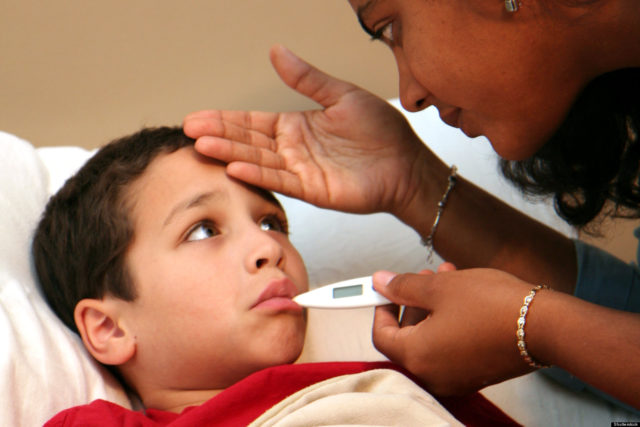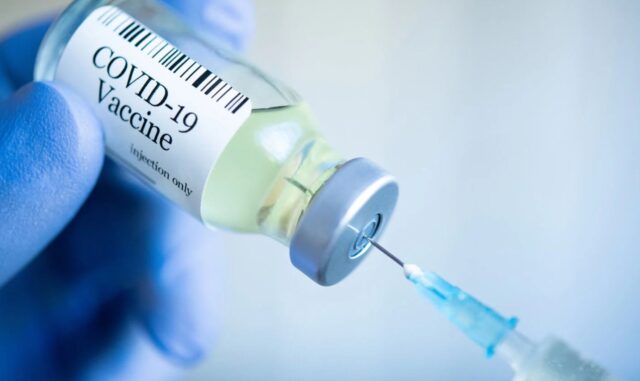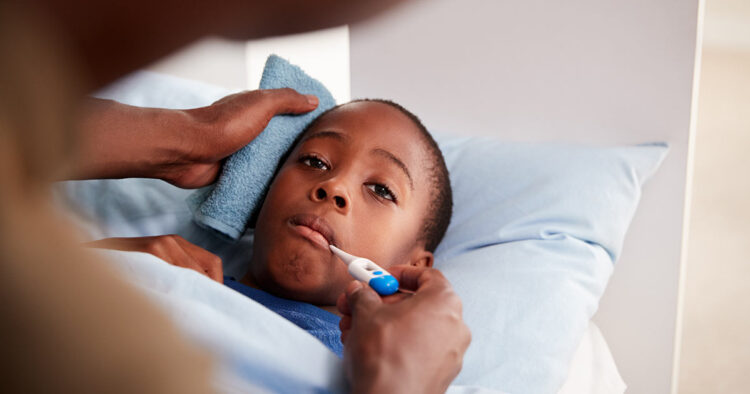According to federal data, more than 320,000 children have been diagnosed with COVID-19 in the U.S. within the past few weeks. Although there is hope on the horizon, for a vaccine for those five to 11-years-old, the reality is, those under five, are still in waiting limbo. Below are five tips for parents, from the experts, in an interview with GMA, to help lower COVID-19 risk for children under five.

“When [the pandemic] first started, we were all talking about how this was such a strange virus that was really targeting the older population and kids were really by and large sheltered from any significant illness,” said Dr. Marya Strand, chief medical officer at SSM Health Cardinal Glennon Children’s Hospital in St. Louis, in a recent interview.
“Now what we’re seeing with the delta variant is not only are kids getting sick with COVID, but kids are getting significantly sick with COVID. Early on we weren’t seeing significant infections in kids under 2, but we now have infants in our hospital with significant disease,” she said.
Dr. Amy Edwards, a pediatric infectious disease specialist at University Hospitals Rainbow Babies & Children’s Hospital in Ohio, echos Strand’s sentiments.
“I think that’s the thing a lot of people have really lost sight of, that low risk does not equal no risk. While we know, of course, that the majority of young kids who get COVID will do fine, that’s not universal.”
As the mother of a 2-year-old son and 4-year-old daughter, Edward’s continued, “In the absence of a crystal ball that tells us which kids are going to have severe COVID and which kids are not, it can be really difficult as a parent.”
With a desire to help parents navigate this Jew chapter in a COVID-19 world, below are five tips, from Strand and Edward’s. for parents, from the experts, to help lower COVID-19 risk for children under five.
1. Get vaccinated.
“Vaccination remains the number one way that parents can protect their kids because if a parent is vaccinated, their child is less likely to get COVID,” said Edwards. “The vast majority of the kids who are admitted to the hospital with COVID have unvaccinated parents, so while schools and daycares are a point of risk for unvaccinated kids, their major risk comes from their parents being unvaccinated.”

2. Stay masked.
“It would be pretty easy for someone in that family to carry that virus to the young child, so the whole family needs to continue to show really good precautions in protecting the little members of their family,” said Strand. “So kids need to stay masked in school, parents need to stay masked at work and that way, when they come home, they can be a family unit that’s safer together.”
3. Keep kids home if they show symptoms of illness.
“If you’re sick or if your children are sick, then you need to stay home,” said Strand. “It does not matter that it’s the holidays, or that it’s Halloween, or that your kids are going to be disappointed. They’re going to be a lot more disappointed people when someone is tragically ill if you just had to get to that neighborhood party.
Strand continued, “It can’t be stressed enough that as we enter this flu season, the more people that we can protect from flu, the better off everyone will be. What we’re seeing is that our health care system is overwhelmed with patients right now.”

4. Pay attention to who your kids are interacting with.
“If a neighbor friend invites them over to play with dolls inside, the answer is always no, and my kids know that,” Edwards stated. “If we take them out into public, like to a local park, they know that, yes, they can play but they’re supposed to kind of keep their distance from other kids, and if a park is too crowded, we simply leave and go to a different place.”
5. Assess how risk-averse your family needs to be.
“Families have to understand their family risk when they make decisions around masking, vaccinating, social distancing and testing,” said Edwards. “And each family needs to understand their familial risk tolerance, how tolerant are they of taking those risks, and then the measures that they can take to mitigate those risks.”
If you have questions about your children under five and COVID-19, CDC.gov has a plethora of information, science updates and more.







